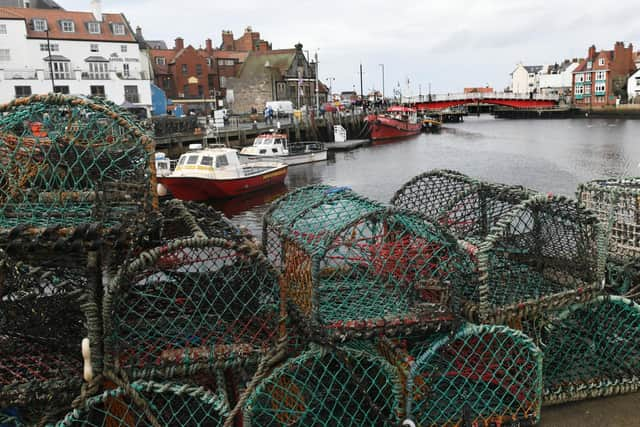Scarborough MP calls for 'dedicated fund' for shellfishermen hit by mass die off of crabs and lobsters
A Government-led investigation concluded that a naturally-occurring algal bloom was “the most likely cause”, after the dead crustaceans began washing up in Yorkshire and the North East last October, and it ruled out chemical pollution.
However, Parliament’s Environment, Food and Rural Affairs Committee (EFRAC) launched an inquiry after researchers from Durham, Hull, York and Newcastle Universities published a report which cast doubt on Defra’s findings.
Advertisement
Hide AdAdvertisement
Hide AdA committee heard last week that a chemical called pyridine, which is “exceptionally toxic to crabs”, had been found in sediment samples taken from multiple locations along the Tees.


Researchers believe silt washed down the river and then disturbed by dredging of shipping channels could have been contaminated with "historic material".
Mr Goodwill, who chairs Parliament’s Environment, Food and Rural Affairs Committee, said the Government should “reconsider its position” on providing financial support to affected communities. In a letter to Environment Secretary Thérèse Coffey , he said: "The UK Seafood Fund is not an appropriate vehicle for responding to this incident. A dedicated, separate fund should be set up to support affected fishers and potters and the regeneration of crab and lobster stocks."
At last week’s hearing Dr Gary Caldwell, from Newcastle University, called for capital dredging, which is being done to pave the way for South Bank Quay, to be paused until an independently verified map of all the locations containing pyridine can be drawn up.
Advertisement
Hide AdAdvertisement
Hide AdThe MP rejected a ban on dredging, but said there was "clearly a need for further data and research on the causes of the mass die-off".
He said there should be an "urgent investigation of the potential sources of pyridine" identified by Dr Caldwell, and wider sampling of sediments in the estuary to create the map.
He said research must be done in an "open and collaborative" way between Government agencies and the wider scientific communities, with independent verification of testing.
This, he said, was "essential to start the process of rebuilding trust between Government Agencies and the local fishing communities which has been badly damaged."
Advertisement
Hide AdAdvertisement
Hide AdThe committee also recommended that an expert independent scientific panel is set up to review the evidence for both theories, and to report back as soon as possible .
It also called on the Marine Management Organisation to review dredging in the Tees and said any material found with “dangerous” levels of pyridine should not be dumped at sea.
Mr Goodwill said a ban on maintenance dredging “would eventually close the port and its associated industries, causing further economic damage”. The committee believed it “should be kept to the minimum level needed to keep the port operational until the expert panel’s investigation is completed.”
